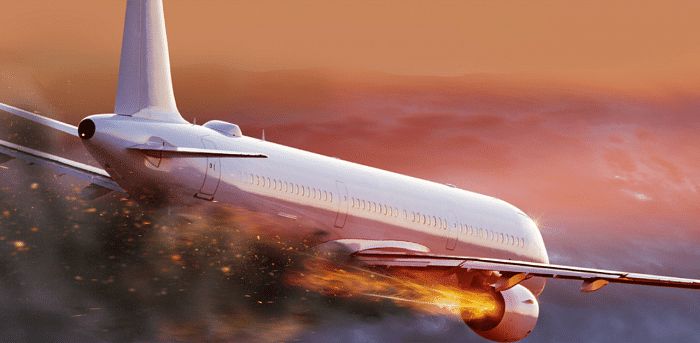
Air France and plane manufacturer Airbus were acquitted Monday over the 2009 crash of a Rio-Paris flight after a French court ruled their errors could not be proven as the disaster's cause.
While the ruling was expected after prosecutors recommended to the Paris court not to seek a conviction, it is still a huge blow for families of victims who have waged a 14-year campaign for justice.
The two France-based companies went on trial in October to determine their responsibility for the worst aviation disaster in Air France's history, which left all 228 people on board flight AF447 dead.
Prosecutors said as hearings in the eight-week trial wound up in December it was "impossible" to convict the two aviation giants, which were charged with involuntary manslaughter but deny the charges.
If convicted, the two companies would have risked a fine of 225,000 euros ($250,000) as well as significant reputational damage.
As the verdict was read out, relatives of the victims present in court stood up, appearing stunned, then sat down again.
"We expected an impartial judgement, this was not the case. We are disgusted," said Daniele Lamy, president of the association which represents the victims.
"All that remains of these 14 years of waiting is despair, dismay and anger," she added.
Alain Jakubowicz, one of their lawyers, added: "We are told: 'responsible but not guilty'. And it is true that we were waiting for the word 'guilty'."
The hearings in Paris centred on the role of defective so-called Pitot tubes, which are used to measure the flight speed of aircraft.
The court heard how a malfunction with the tubes, which became blocked with ice crystals during a mid-Atlantic storm, caused alarms to sound in the cockpit of the Airbus A330 and the autopilot system to switch off.
Technical experts highlighted how, after the instrument failure, the pilots put the plane into a climb that caused the aircraft to lose upward lift from the air moving under its wings, thus losing altitude.
Air France and Airbus have blamed pilot error as the main cause for the crash.
But lawyers for the families have argued that both companies were aware of the Pitot tube problem before the crash, and that the pilots were not trained to deal with such a high-altitude emergency.
The court said Airbus committed "four acts of imprudence or negligence", including not replacing certain models of the Pitot tubes that seemed to freeze more often on its A330-A340 fleet, and "withholding information" from flight operators.
It said Air France had committed two "acts of imprudence" in the way it disseminated an information note on the faulty tubes to its pilots.
But there was not a strong enough causal link between these failings and the accident to show an offence had been committed.
Prosecutors initially dropped charges against the companies in 2019 in a decision that also infuriated victims' families.
A Paris appeals court overturned this decision in 2021 and ordered the trial to go ahead.
Throughout the trial, representatives of Airbus and Air France maintained the companies were not guilty of criminal wrongdoing.
Their lawyers demanded acquittal, describing this as a "difficult decision from a human point of view, but technically and legally justified".
Air France "takes note of the judgement", the company said in a statement after the verdict.
"The company will always remember the memory of the victims of this terrible accident and expresses its deepest sympathy to all of their loved ones."
Airbus said that this decision was "consistent" with the dismissal pronounced at the end of the investigation in 2019. The group also expressed its "compassion" to the relatives of the victims, and "reaffirms (its) total commitment... in terms of aviation safety".